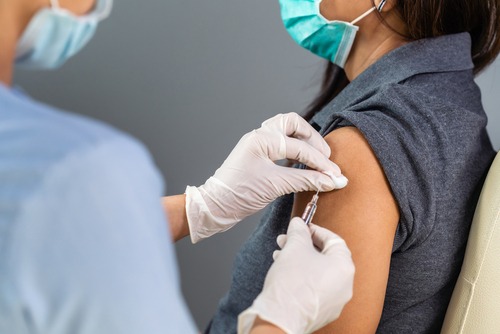
A new study from the Centers for Disease Control and Prevention (CDC) demonstrated continuing good news for mRNA COVID-19 vaccines, crediting them with reducing the risk of infection by 91 percent for those fully vaccinated by either the Pfizer-BioNTech or Moderna vaccines.
While previous studies have confirmed the efficacy of the vaccines, this study is the first to demonstrate their benefits on those who have gotten COVID-19 despite being fully or partially vaccinated. The new analysis was conducted on 3,975 participants who underwent weekly SARS-CoV-2 testing for 17 consecutive weeks at eight U.S. locations. They submitted self-collected nasal swabs for lab testing.
The results revealed that vaccination makes the illness milder and of shorter duration even in those who get it.
“COVID-19 vaccines are a critical tool in overcoming this pandemic,” said CDC Director Rochelle P. Walensky, MD, MPH. “Findings from the extended timeframe of this study add to accumulating evidence that mRNA COVID-19 vaccines are effective and should prevent most infections — but that fully vaccinated people who still get COVID-19 are likely to have milder, shorter illness and appear to be less likely to spread the virus to others. These benefits are another important reason to get vaccinated.”
During the study, any positive results were subjected to further testing to determine both the viral load and the number of days participants tested positive, also known as viral shedding. Investigators also accounted for SARS-CoV-2 circulation in given areas, symptomatic and asymptomatic infections, and how consistently participants used personal protective equipment to determine how much credit the vaccines could receive for benefits. The 91 percent efficacy rate was provided with those details in mind, while an 81 percent risk reduction was charted for even those partially vaccinated.
Vaccinated participants who came down with COVID-19 illness were combined into a single group and compared with unvaccinated, infected participants to ascertain the severity of illness. The fully or partially vaccinated tended to be sick for around six fewer days total and spend two fewer days on bedrest. Further, they experienced about 60 percent less risk of developing symptoms compared to the unvaccinated. Lowered percentages of viral load also imply that the vaccinated may be less likely to spread the virus to others.




